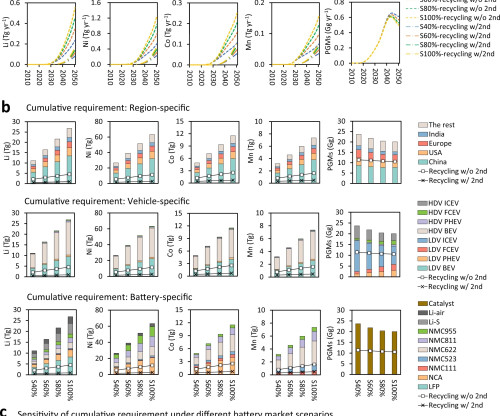Cornell study examines trade-off between critical metals requirement and transportation decarbonization
Green Car Congress
APRIL 17, 2023
Countries should adopt policies that prioritize alternative designs for cathodes/anodes and fuel-cell (green hydrogen) systems to reduce the reliance on primary critical metals. Zhang et al. Monotonic growth in global demand for critical metals to 2050 is the most prevalent trend.
















Let's personalize your content